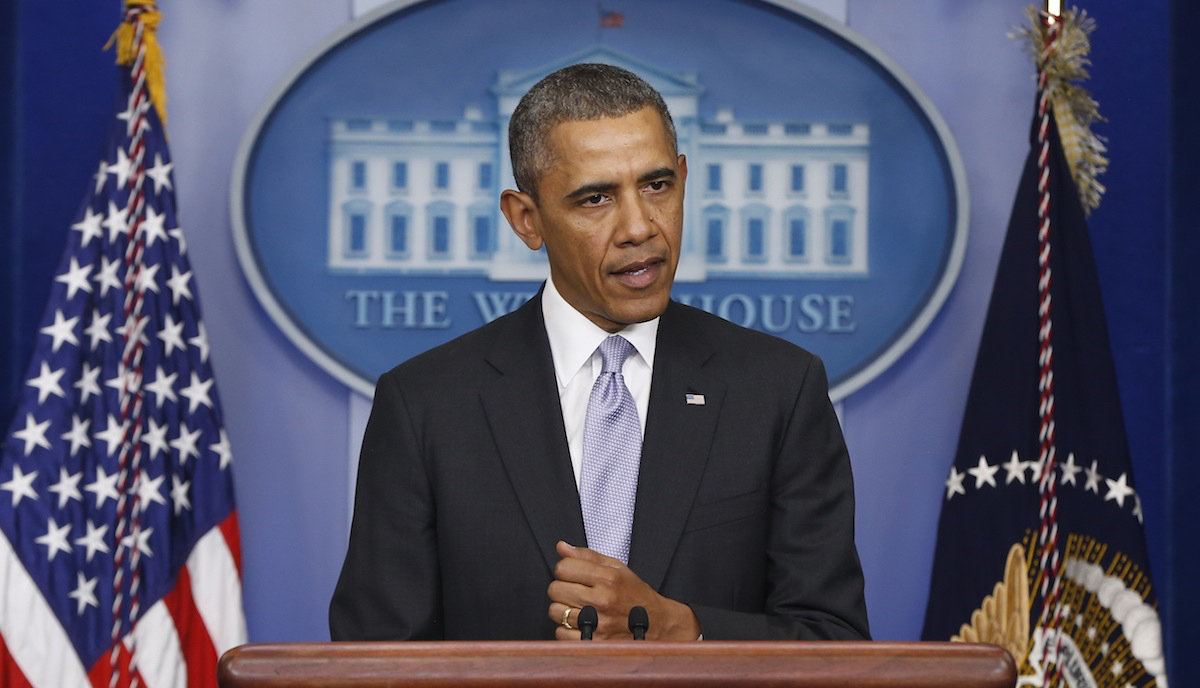Obama Makes Ocean Off Cape Cod a Marine National Monument

Photo via AP.
Nearly 5,000 square miles of ocean off Cape Cod will be designated a marine national monument on Thursday, making it the first of its kind in the Atlantic.
President Barack Obama will be making the announcement Thursday at the Our Ocean Conference in Washington, where according to the White House, he’ll make the case that preserving the swath of water and its underlying mountainous terrain will protect ocean life amid the growing threats of climate change.
More from the Obama administration on the move, which will designate an area about 150 miles southeast of the Cape the Northeast Canyons and Seamounts Marine National Monument:
Today’s designation will protect 4,913 square miles of marine ecosystems with unique geological features that have been the subject of scientific exploration and discovery since the 1970s. These features include three underwater canyons deeper than the Grand Canyon, and four underwater mountains known as “seamounts” that are biodiversity hotspots and home to many rare and endangered species. Scientific expeditions to this region have yielded new discoveries including species of coral found nowhere else on Earth and other rare fish and invertebrates. Additionally, the canyons and seamounts provide habitat for protected species such as sea turtles and marine mammals, including endangered sperm, fin, and sei whales and Kemp’s ridley turtles.
“Today, more than a century after Teddy Roosevelt began a legacy of protecting America’s special places, President Obama has taken the baton and carried it to new heights,” Conservation Law Foundation president Bradley Campbell said in a statement, as reported by the State House News Service. “As we know, fully protected marine areas are six times more resilient to the harsh impacts of climate change and a vital tool in protecting the health of our ocean and our communities for future generations.”
While environmentalists celebrated the decision, the fishing industry has not reacted quite as warmly. Commercial fishing operations and the groups that represent them strongly oppose the move, alleging in public condemnations that moving operations out of those areas would harm the industry. “Millions of dollars of lost revenue are at stake,” the Southern Georges Bank Coalition, which represents lobster trappers, wrote in a letter to the White House, the Globe reports. Fishermen will have 60 days to stop using those waters, and lobster and crab trappers will have seven years to move on. Recreational fishermen will still be allowed to fish there.
New Bedford Mayor Jon Mitchell, also in a letter to Washington, wrote that “we have serious concerns about the impact a monument would have on the commercial fishing industry here in New Bedford, the nation’s top grossing fishing port, as well as across the Northeast.” Gov. Charlie Baker says he is “deeply concerned” about the designation, and Sen. Ed Markey says he appreciates the seven-year delay for lobstermen and fishermen, but says he’s “concerned” that impacts on the fishing industry were “not fully minimized.”
The National Oceanic and Atmospheric Administration says it will help fishermen impacted by the monument designation with existing federal programs:
- low-interest loans for vessel rehabilitation, acquisition of new vessels, aquaculture, shoreside fisheries facilities, and gear repair or upgrades;
- surveys in partnership with industry;
- innovation in stock assessment science; and
- programs and actions aimed at reducing costs, reducing discard mortality, and increasing flexibility and efficiencies.


